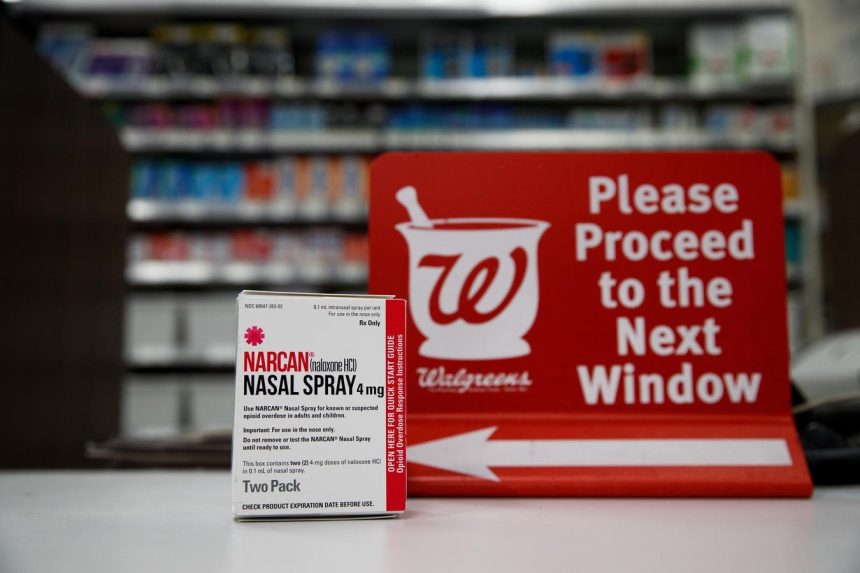The looming congressional regulation of Pharmacy Benefit Managers (PBMs) promises a potential lifeline for struggling pharmacies nationwide, including giants like Walgreens and Walmart, as well as thousands of independent drugstores. For years, these pharmacies have faced mounting financial pressures, largely attributed to the reimbursement practices of PBMs. These entities act as intermediaries between pharmaceutical companies and consumers, managing drug benefits for employers and government health programs like Medicaid and Medicare. Critically, PBMs wield the power to determine how much pharmacies are compensated for dispensing medications, a power that has increasingly come under scrutiny. The current system has led to pharmacy closures across the country, impacting access to vital medications, particularly in underserved communities. The proposed legislation aims to address these issues by introducing greater transparency and fairness into the PBM reimbursement process.
The growing momentum for PBM regulation stems from mounting concerns about their business practices and their impact on drug prices. Critics argue that PBMs haven’t adequately passed along savings to consumers and health plan enrollees, raising questions about their role in escalating healthcare costs. This scrutiny intensified with recent remarks from prominent political figures advocating for greater oversight of the industry and the elimination of “middlemen” in the pharmaceutical supply chain. While past attempts at PBM regulation have stalled, the current political climate, marked by bipartisan support for reform, suggests a higher likelihood of legislative action. This shift is driven by a convergence of factors, including public outcry over rising drug prices, increasing awareness of PBM practices, and a desire to control healthcare spending.
The proposed federal legislation mirrors trends already emerging at the state level, where numerous legislatures have implemented regulations to protect pharmacies from unfair reimbursement practices. These state-level initiatives have focused on ensuring that PBMs compensate pharmacies adequately for their costs, including dispensing fees. This growing state-level action provides a precedent for federal intervention and demonstrates the feasibility of implementing effective regulatory measures. Industry experts predict a significant disruption in the PBM landscape, regardless of the current political administration, with a shift towards more transparent compensation models based on performance rather than opaque pricing mechanisms. This change could fundamentally alter how PBMs operate and impact their profitability.
Advocacy groups representing community pharmacies have long championed fairer reimbursement practices and greater PBM accountability. They see the current congressional activity as a landmark opportunity to achieve meaningful reform. One key provision under consideration in a pending congressional resolution would mandate that PBMs reimburse pharmacies based on the National Average Drug Acquisition Cost (NADAC) plus the state’s dispensing fee for all Medicaid managed care programs. This measure aims to eliminate “spread pricing,” a controversial practice where PBMs charge health plans more than they reimburse pharmacies, pocketing the difference. Proponents of this provision argue it would save taxpayers substantial sums over the next decade while ensuring pharmacies receive fair compensation for their services.
Beyond Medicaid, the proposed legislation seeks to enhance oversight of PBM practices within Medicare Part D, the prescription drug benefit program for seniors. This includes establishing reasonable contract terms and reimbursement rates for pharmacies participating in the program. Moreover, the legislation aims to empower pharmacies by providing a mechanism to challenge contract violations and impose penalties on PBMs found to be engaging in unfair practices. These measures are intended to create a more level playing field between pharmacies and PBMs, protecting pharmacies from exploitative contracts and ensuring they are adequately compensated for their services.
The overall goal of the proposed legislation is to foster a more transparent and equitable pharmaceutical marketplace. By curbing controversial PBM practices like spread pricing and implementing stricter oversight, lawmakers hope to lower drug costs for consumers, protect independent pharmacies, and ensure patient access to essential medications. The potential impact of these reforms is significant, potentially reshaping the pharmaceutical landscape and altering the dynamics between PBMs, pharmacies, and patients. While the legislative process is ongoing, the current momentum suggests that significant changes are on the horizon for the PBM industry, with implications for all stakeholders involved in the pharmaceutical supply chain. The success of these reforms will depend on effective implementation and enforcement to ensure that the intended benefits are realized. The ongoing debate and eventual outcome of this legislation will have far-reaching consequences for the future of prescription drug pricing and access in the United States.



